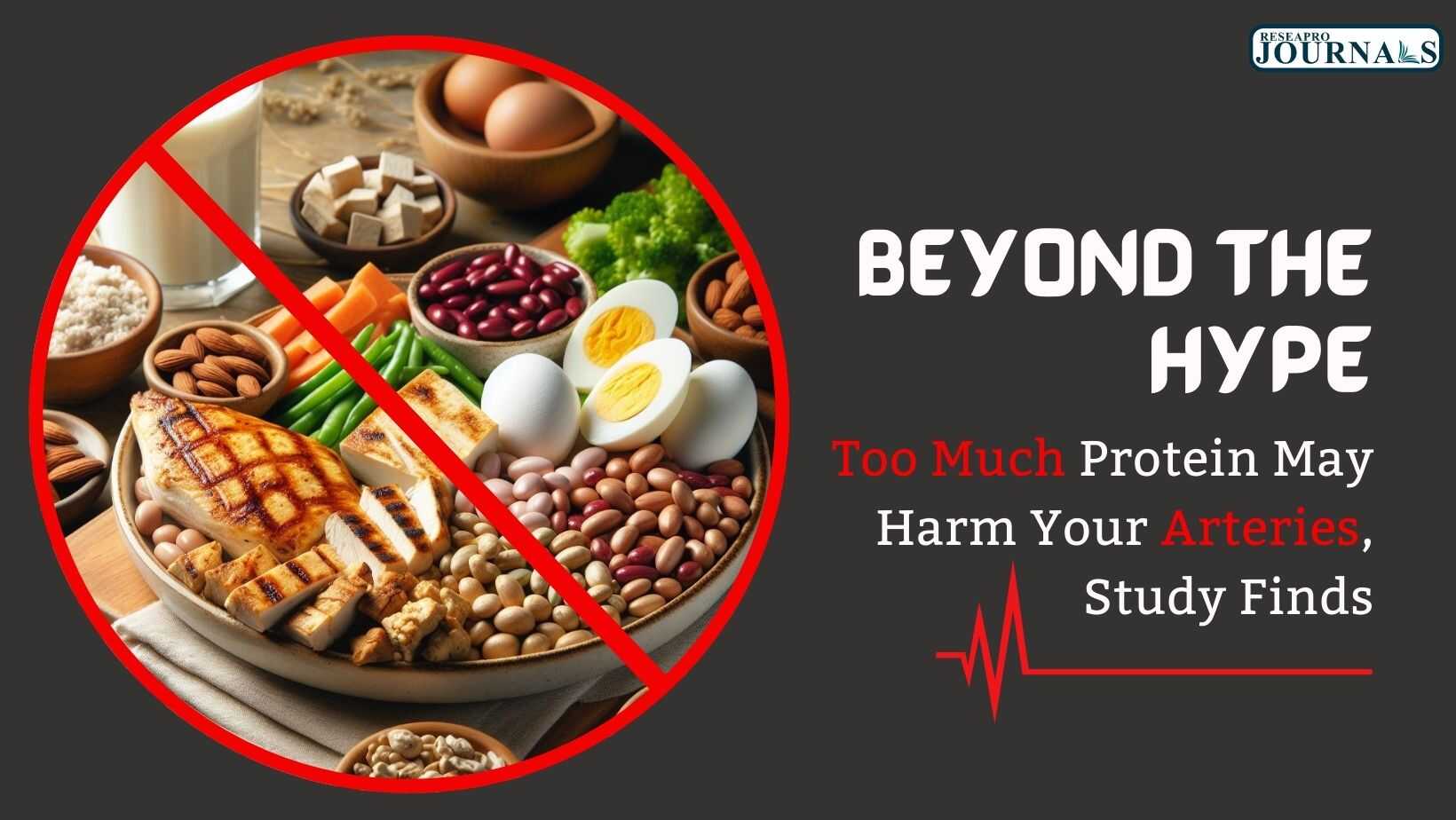
Consuming excessive protein, a trend embraced by many for its perceived health benefits, might actually pose a threat to heart health, according to a new study by researchers at the University of Pittsburgh School of Medicine. Their findings, published in Nature Metabolism, shed light on the potential dangers of exceeding recommended protein intake and the specific amino acid contributing to this risk.

The research combined controlled human trials, experiments with mice, and cell cultures to investigate the impact of protein intake on heart health. The key takeaways include:
- Elevated Protein Intake, Increased Risk: Consuming more than 22% of daily calories from protein was associated with heightened activation of immune cells that contribute to the formation of atherosclerotic plaques, hardening the arteries and increasing the risk of cardiovascular disease.
- Leucine: The Culprit: Among various amino acids, leucine, found abundantly in animal-derived protein sources like meat, eggs, and dairy, seemed to play a significant role in triggering these harmful pathways.
- A Call for Personalized Nutrition: The study emphasizes the need for “precision nutrition” tailoring individual dietary recommendations based on specific needs and potential risk factors. While protein is crucial for various bodily functions, exceeding recommended levels might not be universally beneficial, especially for those susceptible to heart disease.
Beyond the Research:
The findings raise important questions for future research and dietary guidelines:
- Finding the “Sweet Spot”: Determining the optimal protein intake range (between the recommended 15% and the potentially risky 22%) that maximizes benefits like muscle building while minimizing cardiovascular risks.
- Hospital Nutrition Practices: Re-evaluating protein supplementation protocols in hospitals, especially for patients with pre-existing cardiovascular conditions, to ensure balanced and safe nutritional support.
- Plant-Based Protein: Exploring the potential advantages of plant-based protein sources, often containing lower levels of leucine, in promoting heart health and overall well-being.
Moving Forward:
This research opens doors for further investigation into personalized dietary strategies, potentially leading to “precision nutrition” approaches that consider individual needs and health risks to optimize dietary recommendations. By understanding the intricate link between protein intake, specific amino acids, and the molecular pathways involved, researchers can pave the way for the development of more targeted dietary interventions to promote cardiovascular health.
